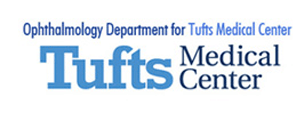BOSTON, MA (Wednesday, August 31, 2011) — Eating a diet high in vitamin D, as well as the nutrients betaine and methionine, might help reduce the risk of macular degeneration, according to new research conducted by New England Eye Center and Tufts Medical Center scientists led by Johanna M. Seddon, MD, ScM, Director of the Epidemiology and Genetics Service, New England Eye Center, and Professor of Ophthalmology, Tufts University School of Medicine. Their study of identical twins from the US World War II Twin Registry also found that the more a person smoked, the higher their risk of developing macular degeneration. The study, “Smoking, Dietary Betaine, Methionine, and Vitamin D in Monozygotic Twins with Discordant Macular Degeneration: Epigenetic Implications”published in the journal Ophthalmology on July 1, is the first to look at a large number of identical twin pairs in which one twin had early age-related macular degeneration (AMD), and the other had late stage AMD.
AMD is highly heritable, with genetic factors determining up to 71 percent of the disease’s severity as determined by a previous study of this twin registry by this same research team. By examining identical twins with the same genes but whose disease was at different stages, researchers were able to identify environmental and behavioral factors that may contribute to severity of the disease. “We wanted to know why, if they have the same genes, do they have different stages of the disease?” said lead researcher Johanna M. Seddon, MD, ScM.
Macular degeneration is one of the leading causes of vision loss in older Americans. It occurs when cells in the macula, the part of the eye responsible for clear central vision, gradually die. Macular degeneration can progress so slowly it takes years for serious vision loss to occur but it can also develop rapidly, causing severe vision loss that can make it difficult to drive, read or conduct daily tasks.
The study evaluated pairs of elderly male twins and used a survey of personal dietary and health habits to determine variations. The study found that twins whose macular degeneration was at the early stages tended to consume more vitamin D from dietary sources such as fish or milk than their brothers. Vitamin D may reduce the risk of macular degeneration because it has anti-inflammatory properties. It may also block the formation of new blood vessels that can grow under the macula, leaking blood and causing vision loss in the more severe stages of the disease. Similarly, Dr. Seddon’s research team also found that higher intakes of betaine and methionine were linked to a slower progression of the disease. These nutrients have also been linked to epigenetic mechanisms, which is a change in DNA, not attributable to a change in the actual DNA sequence. This is the first time these nutrients have been linked to AMD. Betaine is found in fish, grains and spinach, while methionine is found in poultry, fish and dairy foods.
The study also found that among the pairs of twins, the twin who was the heavier smoker tended to have the more severe case of macular degeneration. These results indicate that both genetic susceptibility and environmental factors are important, that epigenetic factors may also be involved, and further underscores the importance of modifiable behaviors, especially avoiding smoking and eating a healthy diet, to help prevent or delay the progression of macular degeneration.
“Eat a healthy diet with lots of fruits and vegetables, and that can make a difference – even if you have a genetic susceptibility to macular degeneration,”said Dr. Seddon, an ophthalmologist and specialist in macular degeneration, “and of course don’t smoke.”
###
About Johanna M. Seddon, M.D. ScM
Johanna M. Seddon, M.D., ScM, is an Ophthalmologist and leading researcher at New England Eye Center at Tufts Medical Center. Dr. Seddon is a pioneer in nutritional research in age-related macular degeneration and cataract, as well as in the field of ophthalmic epidemiology and genetics. For more than 20 years, Dr. Seddon has received NIH grants on epidemiologic, biologic, and genetic biomarkers for macular degeneration, and has made original contributions in these areas.
She was a vice-president and trustee of ARVO, currently holds a gold ARVO fellow status and is the recipient of the inaugural Maurice F. Rabb, Jr. Award from Prevent Blindness America, for dedication and contributions to prevention and treatment of age-related macular degeneration.
###
About New England Eye Center
New England Eye Center (NEEC) is the ophthalmology department for Tufts Medical Center and Tufts University School of Medicine. New England Eye Center offers a full range of comprehensive ophthalmology including treatments for cataracts, glaucoma, macular degeneration, pediatric ophthalmology and aesthetic surgery. New England Eye Center is also a leading provider of Laser Vision Correction in Greater Boston and New England offering a full range of vision correction procedures for all types of eye conditions. For more information about the New England Eye Center, go to www.NEEC.com.
###
About Tufts Medical Center
TuftsMedical Center is an exceptional, not-for-profit, 415-bed academic medical center that is home to both a full-service hospital for adults and Floating Hospital for Children. Conveniently located in downtown Boston, the Medical Center is the principal teaching hospital for Tufts University School of Medicine. New England Eye Center (NEEC) is the ophthalmology department for Tufts Medical Center and Tufts University School of Medicine. New England Eye Center offers a full range of comprehensive ophthalmology including treatments for cataracts, glaucoma, macular degeneration, pediatric ophthalmology and aesthetic surgery. For more information, please visit www.tuftsmedicalcenter.org.
NEW ENGLAND EYE CENTER MEDIA CONTACT:
William R. Sacco 617-636-1055 [email protected]
TUFTS MEDICAL CENTER MEDIA CONTACT:
Julie Jette 617-636-3265 [email protected]




